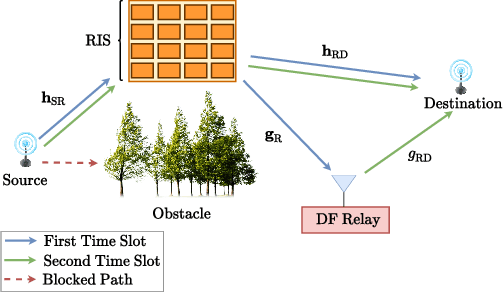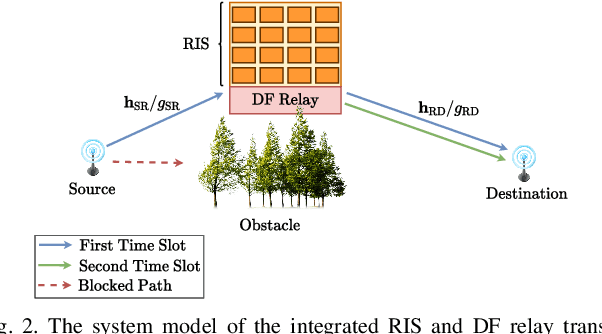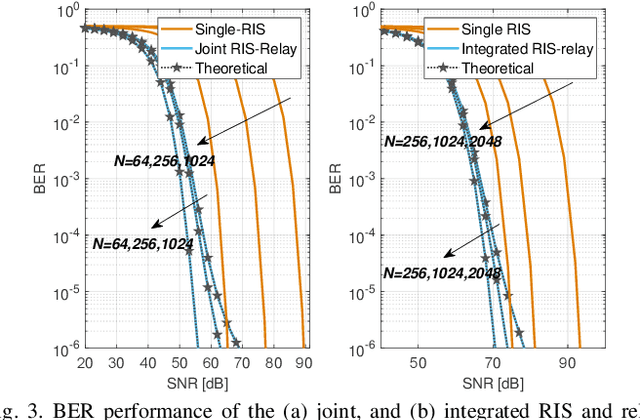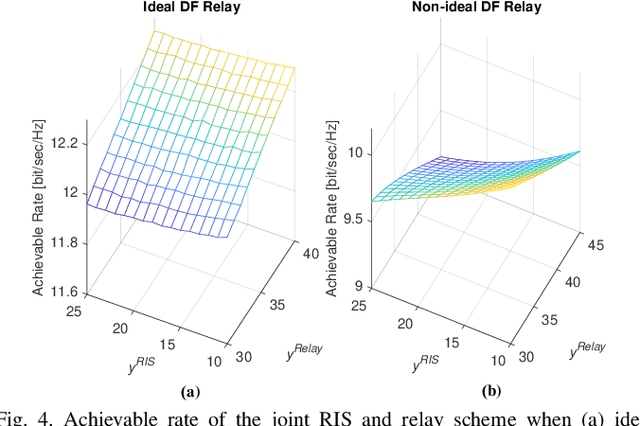Hybrid RIS-Empowered Reflection and Decode-and-Forward Relaying for Coverage Extension
Paper and Code
Dec 22, 2020



In this letter, we introduce two hybrid transmission schemes combining a passive reconfigurable intelligent surface (RIS) with decode-and-forward relaying in a synergistic manner. The proposed schemes offer a flexible as well as cost- and power-efficient solution for coverage extension in future generation wireless networks. We present closed-form expressions for the end-to-end signal-to-noise ratio of both schemes and a sequential optimization algorithm for the power allocation and the RIS phase configurations. Our computer simulations and theoretical analysis demonstrate that the RIS and relaying technologies enhance the achievable rate and error performance remarkably when working complementary to each other, rather than being considered as competing technologies.
 Add to Chrome
Add to Chrome Add to Firefox
Add to Firefox Add to Edge
Add to Edge